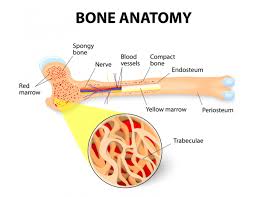Our results confirm that vitamin D deficiency is associated with a substantially increased risk of all-cause dementia and Alzheimer disease”
Evidence-based research on the subject is clear. Vitamin D deficiency increases the risk of a host of chronic diseases including a multiple myeloma diagnosis, Alzheimer’s disease, dementia and others.

I take 2000 mg of vitamin D3 daily (2 x 1000 mg.). At this point in my life as a multiple myeloma survivor, I am supplementing vitamin D3 to prevent a relapse and enhance my bone health.
Life Extension Vitamin D3 has been evaluated and approved by Consumerlab.com, an independent testing service. I have my blood tested for vitamin d serum blood levels annually.
If I knew then what I know now...
I’m not saying that taking a vitamin D3 supplement is going to cure anything. I’m saying that the study linked and excerpted below clearly shows that “...vitamin D deficiency is associated with a substantially increased risk of all-cause dementia and Alzheimer disease.”
If you are at risk for Alzheimer’s disease or have been diagnosed with early Alzheimer’s, please read the study and consider vitamin D3 supplementation.
For more information about managing Alzheimer’s Disease, scroll down the page, post a question or comment and I will reply ASAP.
Thank you,
David Emerson
- MM Survivor
- MM Cancer Coach
- Director PeopleBeatingCancer
Recommended Reading:
“OBJECTIVE: To determine whether low vitamin D concentrations are associated with an increased risk of incident all-cause dementia and Alzheimer disease…
METHODS: One thousand six hundred fifty-eight elderly ambulatory adults free from dementia, cardiovascular disease, and stroke who participated in the US population-based Cardiovascular Health Study between 1992-1993 and 1999 were included…
Incident all-cause dementia and Alzheimer disease status were assessed during follow-up using National Institute of Neurological and Communicative Disorders and Stroke/Alzheimer’s Disease and Related Disorders Association criteria.
CONCLUSION: Our results confirm that vitamin D deficiency is associated with a substantially increased risk of all-cause dementia and Alzheimer disease. This adds to the ongoing debate about the role of vitamin D in nonskeletal conditions.”
“In addition to breast and colorectal cancers, multiple myeloma has also been associated with vitamin D deficiency. Given the role of vitamin D in calcium absorption and bone metabolism, it is crucial to maintain sufficient levels for multiple myeloma patients because of their high risk of bone-related complications. We hypothesized that there was a high prevalence of vitamin D deficiency and insufficiency among multiple myeloma patients. We also hypothesized that there is inadequate screening of vitamin D levels throughout community oncology clinics nationwide…
Conclusion: Vitamin D levels are frequently low among multiple myeloma patients and, despite this, screening levels of this vitamin is not thought to be part of the routine work up by the vast majority of oncologists in the United States…”
“Vitamin D is one of the essential nutrients to sustain the human health. As a member of the steroid hormone family, it has a classic role in regulating metabolism of calcium and a non-classic role in affecting cell proliferation and differentiation.
Epidemiological studies have shown that 25OHD deficiency is closely associated with common chronic diseases such as
- bone metabolic disorders,
- tumors,
- cardiovascular diseases,
- and diabetes.
25OHD deficiency is also a risk factor for neuropsychiatric disorders and autoimmune diseases. 25OHD deficiency is highly prevalent in the world. It is therefore necessary to know the adverse health effects of 25OHD deficiency, and to design interventions and early treatments for those who are likely to have low levels of 25OHD…
Conclusion- 25OHD deficiency predominately affects the occurrence and development of many chronic diseases. With an aging population, the numbers of patients with osteoporosis, cardiovascular diseases, cancers, diabetes and other chronic diseases dramatically increase.
Similarly, the incidence of neurological and psychiatric diseases is also increasing year by year. These outcomes result in the loss of life of the population, reduced quality of life and significant social and economic burdens.
Since these chronic diseases lack specific treatment or the treatment effects are not curative, strategies for the control of chronic diseases should focus on the prevention.
Vitamin D deficiency is associated with chronic disease. Hence, it is challenging to clarify whether vitamin D deficiency is the cause or only the consequence of various chronic diseases. We need to continue to study Vitamin D…”




